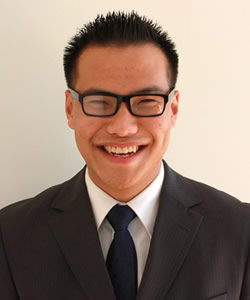I have great hopes for my generation. Our ability to access information is unparalleled and our means of communication have expanded. We have mastered the technology needed to thrive in a globalized world, and not only that, we care about shaping the important issues of our day. With greater means come greater responsibilities, and as a whole, we desire to use our gifts to leave our workplaces, communities, and world better off than how we first found them. It is certainly no hard sell to claim that the millennial generation is different.
Nonetheless, the technological revolutions that helped increase our awareness for important issues have also generated negative repercussions. With so much information in the world, we aim for summaries and sound bites, selectively filtering ideas that don’t fit our worldviews. With greater opportunities to decide what we want to see and hear, we often choose the path of self-censorship; we congregate with only those whom we agree with, who don’t rock our boats. While we claim to value tolerance, we demonize those who hold conflicting perspectives. This cognitive dissonance is not biased in any way; it cuts across Republican and Democrats, religious and secular, minority and majority. In essence, we simultaneously see more but know less.
As a Cal student, this issue moved to the forefront this past semester. As UC Berkeley Republicans protested affirmative action by putting on a bake sale where the price of goods was based on the buyer’s ethnicity, the campus erupted in outrage. Students stormed Sproul Plaza, physically threatening College Republicans. Campus groups sought to silence those involved without adequately addressing the fundamental issues at stake. At the very place that championed the Free Speech Movement, Berkeley’s collective effort to limit coherent dialogue possessed an especially bitter irony.
Instead, with better means to analyze crucial issues, the entire millennial generation, myself included, must work harder to build the rapport necessary to openly, critically, and respectfully examine different perspectives. This doesn’t require us to wander around aimlessly, devoid of personal values or beliefs, for as G.K. Chesterton once said, “The purpose of an open mind, like an open mouth, is to close on something solid.” What civil dialogue then requires is an ability to listen to one another, especially to those with whom we disagree. Tolerance means nothing if there is nothing to tolerate. True diversity remains illusory if we demand total conformity.

